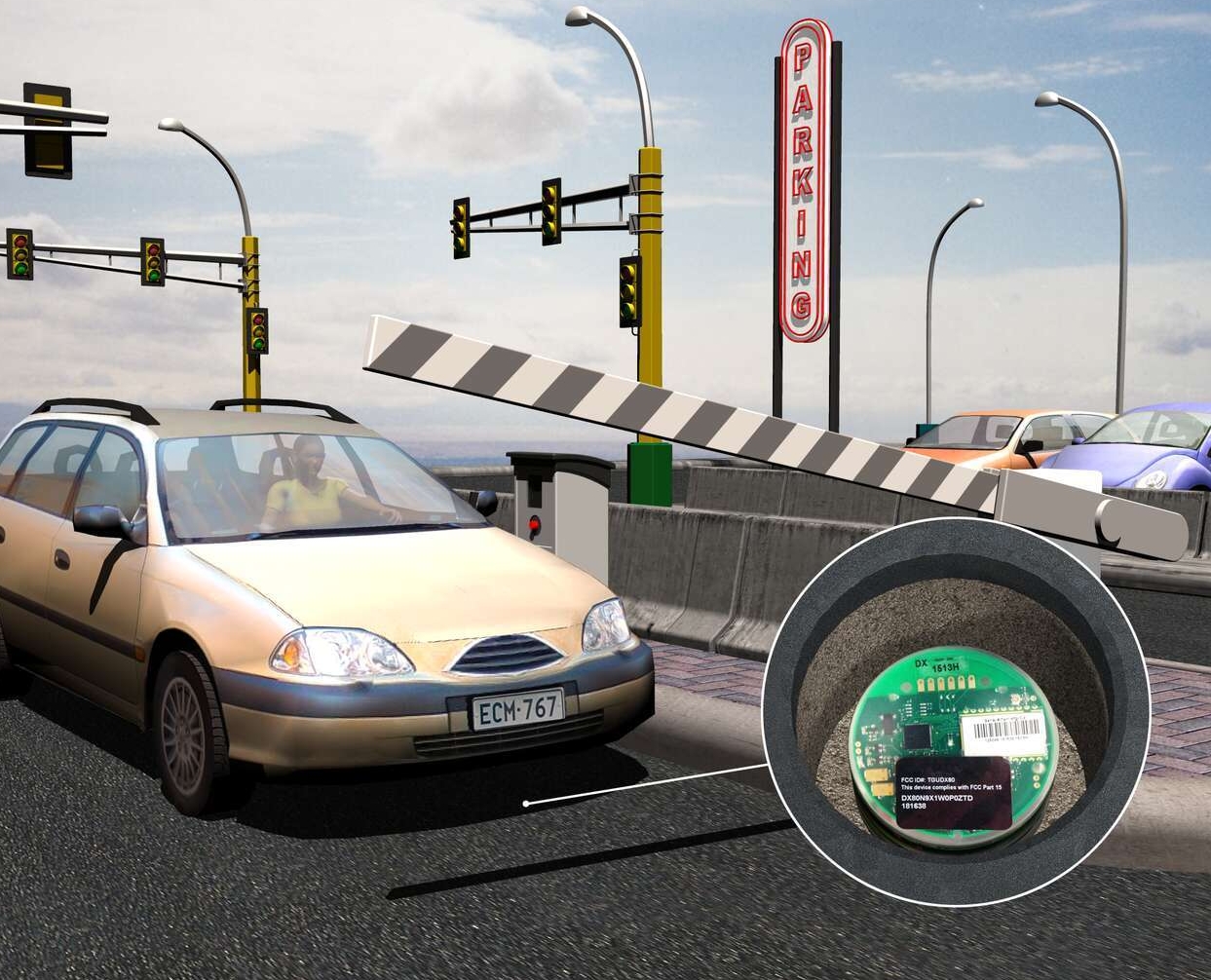3 Advantages of Wireless Magnetometers for Vehicle Detection

Summary: The ability to reliably detect vehicles offers significant advantages for asset management, resource allocation, site safety and traffic control. Identifying the right technology for your vehicle detection application can be challenging, and many factors must be taken into consideration, including task, size of target, sensing range, sensor mounting, and whether the application is primarily indoor or outdoor.
This article explains how a wireless magnetometer can be used for vehicle detection and describes the top 3 advantages of the technology.
What is a Magnetometer?
Magnetometers can be either wired or wireless, but for the purposes of this article we will focus on wireless magnetometers, which offer important advantages to the end user.
A magnetometer works by using a passive sensing technology to detect large ferrous objects (for example, a truck, automobile, or rail car) by measuring the change in the ambient magnetic field.
When a vehicle alters that magnetic field, the sensor detects those changes. As with other sensors, the range of the magnetometer will depend on the target.
Advantages of Wireless Magnetometers for Vehicle Detection
1. Cost Effective
A wireless magnetometer provides a cost-effective and convenient alternative to other sensing technologies. It requires no wiring or external control box, but achieves an accurate and repeatable response.
2. Minimally Invasive
Wireless magnetometers are much less invasive, less expensive, and easier to commission quickly compared to inductive loops, because wireless magnetometer units are small, self-contained, and don’t require extensive work under the concrete.
The wireless M-Gage sensor from Banner, for example, can be installed above grade or below grade. Below-grade installation requires only a small 3-inch diameter hole drilled into the concrete for each sensor location, which means less downtime for installation.
3. Low Maintenance
A truly wireless magnetometer will not only offer wireless communication via radio, but will also be completely self-contained, including the battery. The long life of the battery ensures continuous performance for years at a time.
Important Considerations
Image: Wireless magnetometers detect vehicles in parking applications
In order to reliably detect when the magnetic field is disrupted, a magnetometer must first be taught the typical ambient magnetic conditions. Therefore, a vehicle must not be present when the sensor is being taught.
Another consideration when installing a magnetometer is that if the sensor moves out of alignment over time, it may cease to function properly. Because of this, a magnetometer must be rigidly fixed at the time of installation to ensure reliable long-term functioning.
Wireless magnetometers from Banner Engineering also feature an advanced algorithm that detects fluctuations and adjusts accordingly. Finally, in cold climates that experience large amounts of snow, it is often necessary to install the magnetometer below grade to avoid damage from snowplows.
For More Information
Featured Products

Drive Thru Monitoring
A drive thru vehicle detection solution can alert employees to a customer’s presence at a window, count the number of cars passing through, monitor time spent in the drive thru, and more.

Traffic and Parking
Vehicle detection solutions for parking applications can reliably verify when a garage is full, activate a pay station, direct drivers to available parking spots, and more.

Car Wash
Vehicle sensing technologies verify that vehicles are correctly positioned in the car wash bay, monitor the flow of traffic, and trigger next steps like opening and closing doors.

Loading Docks
Vehicle detection at a loading dock can be used to identify available bays, facilitate fast load and unload times, verify vehicles are in the correct position before opening doors, and more.


